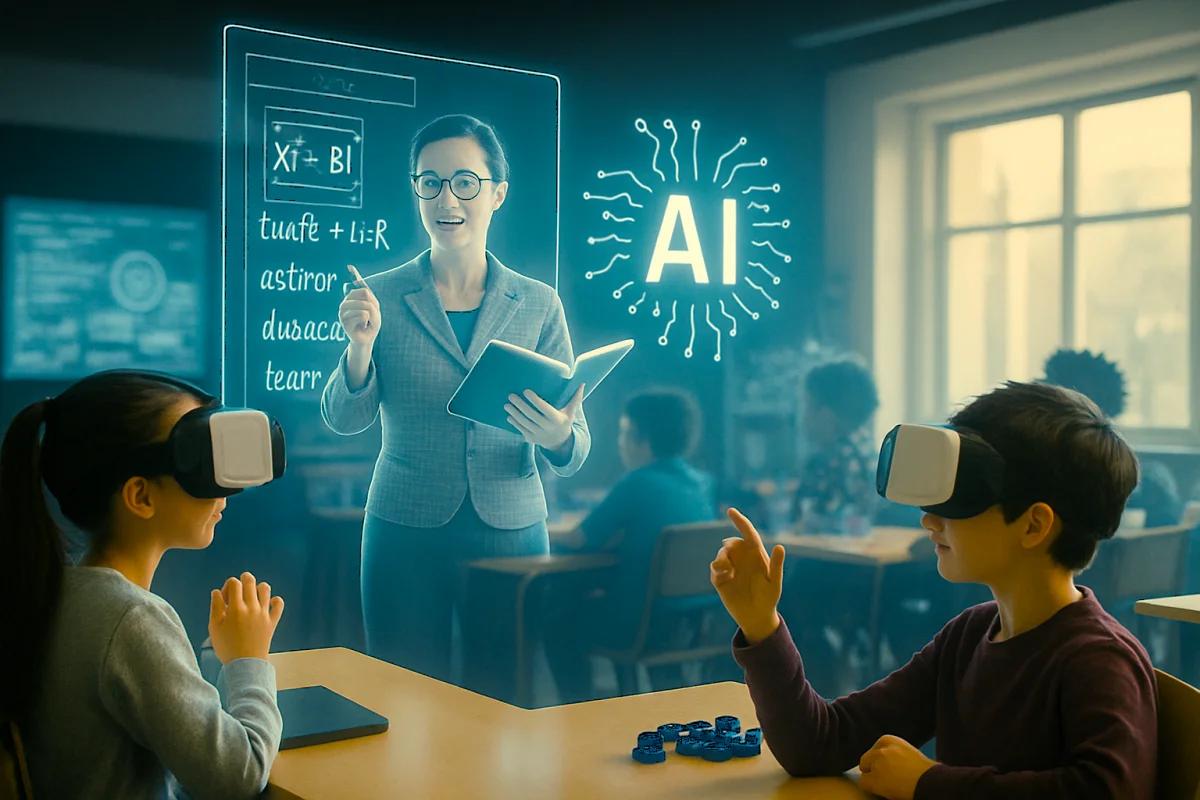Innovations in Education: Online Courses, VR Classrooms, and AI Teachers
By 2025, the field of education is undergoing one of the most significant transformations in history. Technology is no longer just a supporting tool—it has become an inseparable part of the learning process. Online courses, VR classrooms, and AI teachers are shaping a new reality, making education more accessible, interactive, and personalized than ever before.

Online Courses: Learning Anytime, Anywhere
Online education has been growing in popularity for years, but in recent times it has reached entirely new dimensions. Platforms such as Coursera, Udemy, and Khan Academy provide millions of students worldwide with the opportunity to study at their own pace. Whether it’s mathematics, programming, art, or business management—knowledge is now just a click away. Online courses not only share knowledge but also connect a global audience, enabling cultural and professional exchange among learners.
VR Classrooms: Learning Beyond Reality
In the past, a classroom meant sitting in rows before a teacher and a chalkboard. Today, VR classrooms are revolutionizing that model. With the help of VR headsets, students are immersed in virtual environments where they can travel back in time to explore historical events, study chemical reactions without physical labs, or even collaborate in lessons with peers from different continents. Virtual reality makes learning more visual, interactive, and emotionally engaging.
AI Teachers: The Future of Personalized Learning
Artificial intelligence is already being used as a “personal tutor” that tracks each student’s progress individually. AI teachers analyze strengths and weaknesses, provide tailored exercises, and answer questions in real time. This means that students are no longer forced to keep the same pace as the rest of the class—they can advance according to their unique learning abilities.
Advantages
- Accessibility — education is no longer limited by geography or time zones.
- Interactivity — VR and AI create more immersive, dynamic learning experiences.
- Personalization — students receive customized materials and support.
- Cost Efficiency — online and virtual resources are often more affordable compared to traditional models.
Challenges
Of course, these innovations come with challenges. Dependence on technology means not everyone has access to the required equipment. Cybersecurity and data privacy remain critical concerns. Moreover, experts emphasize that the emotional role of teachers and human interaction can never be fully replaced by machines.
Conclusion
Online courses, VR classrooms, and AI teachers are building an entirely new ecosystem for education. These are not just tools—they are redefining the very philosophy of learning and teaching. 👉 Do you believe that virtual and AI-powered education could one day fully replace traditional classrooms?
Article updated • by: Silent Cat 🐾 • 14-09-2025, 06:20
Reason for change: Correction
✍ Article Author
- Registered: 26 July 2025, 15:34




 Silent Cat 🐾
Silent Cat 🐾